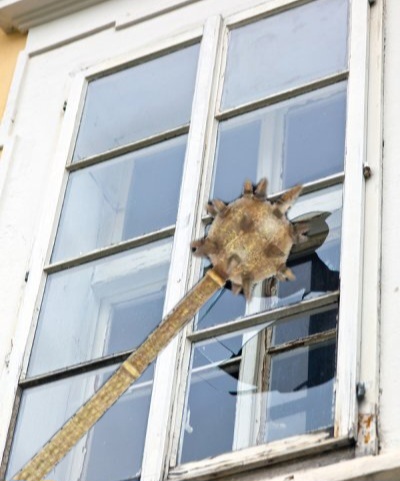- cross-posted to:
- [email protected]
- cross-posted to:
- [email protected]
cross-posted from: https://reddthat.com/post/20260613
Its quicker in the US because of the voltage difference. In the UK kettles are quicker.
Big benefit to a kettle is not heating the container in the same way, making it easier to pour/brew. Also no timing involved as the kettle turns itself off once the water has boiled (whatever the volume) where as in the microwave you have to get the time right for whatever your bpiling.
Kettle is also great for boiling water for cooking - you can put freshly boiled water into a pot and then get it up to boiling or simmer on the hob fast.
also some of them have temperature control. it’s awesome. I can set it from 40 to 100 degree with 5 degree intervals. also it has option to keep the water warm up to an hour
Which is nice because not all teas/infusions are made for 100C. Also if you just want to warm up water to warm up baby milk.
yeah it’s super nice for a tea. aldo handy with dry yeast which usually has to go to 40 degree water
Also electric kettles are basically free nowadays. I got a lovely glass one because less stuff builds up in it and it’s fun to watch it go from “ “ to “gruarghblrarblrarbl” like *damn this tea gonna be stellar”
To be honest, I was just testing if crossposts were working from Photon (they don’t on Lemmy UI on 0.19.4)
Probably takes longer to crosspost because your electricity is shit lol
#wrecked
i don’t have a microwave, but isn’t there a chance water can “overheat” in the microwave and instantly, explosively vaporise when you put something in? is this just super rare, so nobody cares?
Technically? Yes. Practically? No.
You’d have to be trying to microwave distilled water to even have a shot.
And it has to be in a perfectly clean container with a pristine surface, like a glass beaker.
Technically, yes.
I think the scenario would require you to heat up pure H20 in a perfectly clean non porous glass. The H20 would not bubble and boil so the temperature would raise above the boiling point.
Once anything is introduced, like a spoon or a tea bag, into the liquid it would explode with steam and super hot water.
I’m sure someone smarter than me could explain it more better.
I’ve never had water explode in a microwave. Never had a potato explode in the microwave either.
😱 that’s a thing too? i should buy a helmet in case i want to use the office microwave again
the water and the container would need to be very clean and the container would need to be very smooth and free of surface defects for that to happen. even microscopic cracks or scratches in glazing or glass can act as a highly effective starting point for boiling.
think scraping over the bottom of a glass with a spoon: that might be enough already to create those kinds of scratches.
I use neither a microwave nor an electric kettle, but a stovetop kettle. What kind of troglodyte trash monster does this make me?
As a Brit, using a whistling stovetop kettle is perfectly acceptable for tea making!
Does it have a built in whistle?
Yes
You monster!
Kettles are more efficient and thus faster at a given wattage.
The only reason a microwave would be faster is if you have low-wattage kettle or a 220v microwave, in which case it isn’t an apples to apples comparison
Electric kettles are just easier to use and it’s the difference of what, 1 minute?
.
Not in England. 240V boils water faster than you can get the teabags out of the cupboard.
FYI, the reason that microwaved water is an offence to tea drinkers isn’t actually the microwave part.
The issue is that black tea should be made using water over 95°C (203F). Basically a rolling boil, straight out of the kettle. With a microwave, your water likely hits 100, then cools quite rapidly. By the time you add it to the tea, it’s getting too cold.
The optimal temperature is different for green or white teas, but Britain mostly drinks black tea.
On a side note, a disproportionate number of British “explorers” wrote complaints about not being able to make a good cup of tea, while climbing mountains. The power air pressure lets water boil at lower temperatures.
The only difference, thermodynamically, is the volume of water. Water of the same volume, in the same container, heated to 100c will cool at the same rate regardless of the heating method. So, your brewing temperature, while important, isn’t a difference at all unless you’re brewing your black tea directly in the kettle, and I’m not a Brit, but I don’t think that’s how it’s done.
Doesn’t latent heat change the time taken to cool? Also part of the point of a kettle being that it’s 100c wheras a microwave could easily be under since it turns off based on time.
You can run the microwave again. It’s not a one and done thing. Not sure what you mean by latent heat in this case, are you talking about inside the microwave, or the kettle itself or?
Several differences.
The kettle is a lot closer to the cup and has thermal mass. I generally pour with the water at the bottom still boiling slightly. It takes time to get the water out of a microwave and pour it into the pot/cup.
A kettle gets the water to a boil, then stops. A microwave is likely to either overheat (and so waste energy) or under heat, and so be too cold.
The kettle water can be used to easily warm the pot, if needed, before it fully boils.
Kettles are a lot more consistent for water heating than microwaves. Add water, click switch, wait for boil and switch clicking off. I would give good odds I could walk into most people’s kitchens and work their kettle without instruction or significant effort.
Kettles can’t superheat water.
But microwaves taint the flavor of the water. So fuck that. Ekettles only for me. Too bad they are not as fast here in the US. UK voltage is double ours.
Clean your microwave
It doesn’t matter how clean it is. Microwaves retain the smell of foods heated in them.
Clean your microwave. Get a splatter shield. Don’t be filthy. Microwaves aren’t magical water-tainting devices, they retain what you allow them to retain.
Piss is identical to water but I don’t see you fucking drinking it. Buy a fucking kettle.
Edit: I just remembered what American beer is.
Do you have some weird ass homeopathic urine or something? It is most certainly not chemically identical to work for most people.
Tf you pissing bruh?
American beer is like sex in a canoe.
American beer is the tits, and I’m sick of the rest of the world judging us by the piss water that gets exported. Sweetwater, voodoo ranger, wiseacre, lagunitas, yoozoo, I could go on and on. American beer has evolved into something magical over the past couple decades.
I am going to drag you to my local Tesco and get you a bottle of Cherry Chouffee.
What is this now? Is it good or bad?




